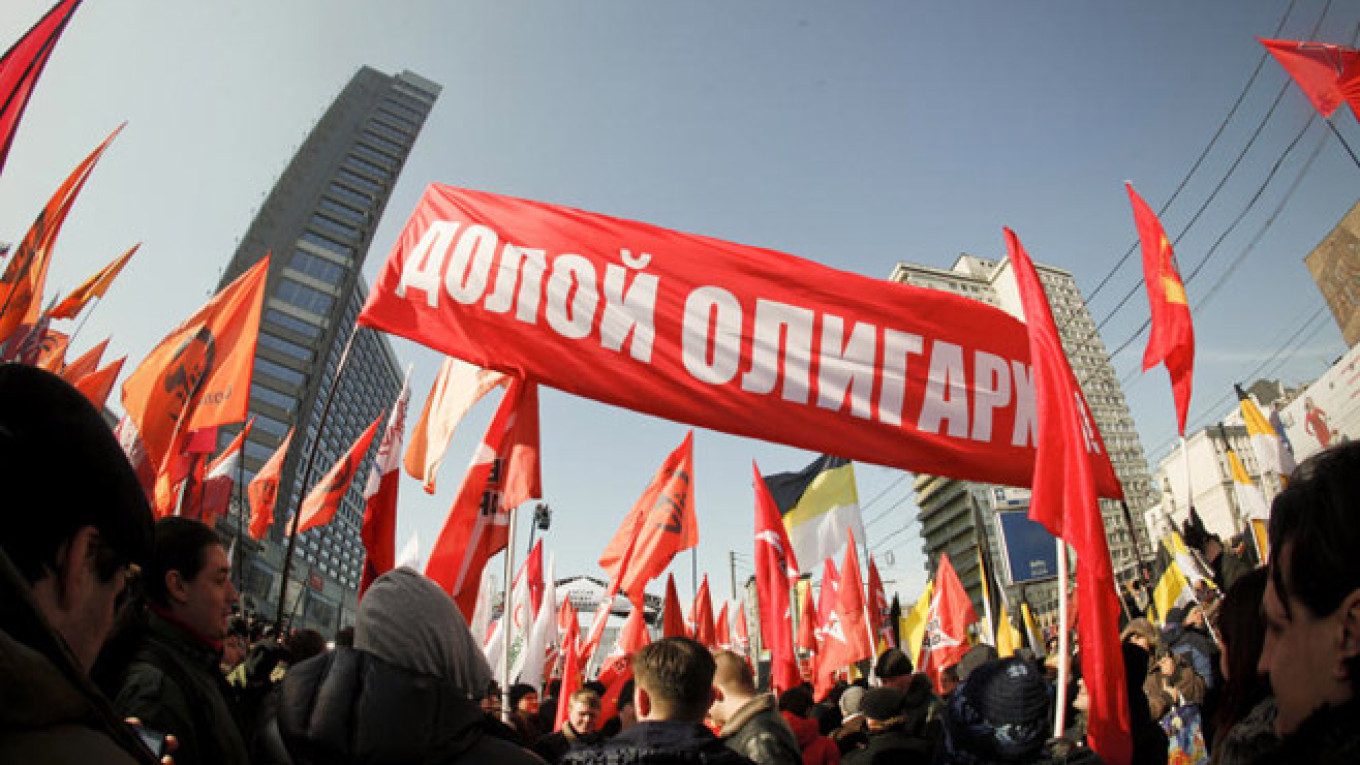The Economist published a "crony-capitalism index" in March that evaluates the wealth of billionaires holding monopolies or direct ties to the state, and compared that with their respective countries' gross domestic products. Russia placed second after Hong Kong.
The authors of the study hoped that visible global historical trends would continue and that oligarchs in developing countries would gradually shift their holdings away from revenues made possible through government connections to more transparent types of businesses.
That might eventually happen in Russia, but obviously not soon. With the country practically at war, the "crony capitalism" and "crony socialism" systems in place will probably only intensify.
Close Kremlin associates who received business preferences in peacetime can now expect to receive direct government bailouts as compensation for losses caused by Western sanctions, with leaders extorting that money from other Russian businesspeople or even seizing their businesses outright.
According to Russia's Economic Development Ministry, the government might pull money from frozen pension funds to bolster the beleaguered oil and gas sector, or else raid the Reserve Fund, which ironically was first created to protect the Pension Fund from losses.
The government plans not only borrow against Russia's future development; they reallocate funds already earmarked for current investment and infrastructure projects, putting the eventual realization of these projects at risk.
The government had earlier instructed the Finance Ministry to place some Reserve Fund money on deposit with Vneshekonombank in order to purchase shares in bank VTB and Rosselkhozbank. Rosneft and Novatek have also applied for government assistance and might receive Reserve Fund money as early as this year.
Of course, the government might also choose to assist those companies by providing additional budget revenue, tariff or tax breaks and so on. Either way, the logic remains the same: Russian taxpayers are forced to bail out companies that Western sanctions have targeted because of their close ties to President Vladimir Putin and the Kremlin.
During "peacetime," Russia's state capitalism was built on the principle of competition for access to administrative resources. Those who were "closest to the center" won that struggle and used their positions to halt further competition for these resources. That alone created a huge cost to the economy. In "wartime," that closeness to the Kremlin has made them subject to Western sanctions.
And now, when resources are scarce, those sanctions have prompted political leaders to come to the aid of their close associates. Interestingly, the fact that Kremlin cronies already controlled everything in Russia and sought additional assets in neighboring states contributed to Moscow's aggressive foreign-policy stance — the results of which largely triggered the current sanctions.
This vicious cycle might lead to consequences that would make today's confiscation of pension funds look innocuous by comparison. The time for reaping profits from privatization has ended: Now the government is only generating losses and forcing taxpayers to foot the bill.
Andrei Sinitsyn is a correspondent and op-ed contributor for Vedomosti. This comment appeared in Vedomosti.
A Message from The Moscow Times:
Dear readers,
We are facing unprecedented challenges. Russia's Prosecutor General's Office has designated The Moscow Times as an "undesirable" organization, criminalizing our work and putting our staff at risk of prosecution. This follows our earlier unjust labeling as a "foreign agent."
These actions are direct attempts to silence independent journalism in Russia. The authorities claim our work "discredits the decisions of the Russian leadership." We see things differently: we strive to provide accurate, unbiased reporting on Russia.
We, the journalists of The Moscow Times, refuse to be silenced. But to continue our work, we need your help.
Your support, no matter how small, makes a world of difference. If you can, please support us monthly starting from just $2. It's quick to set up, and every contribution makes a significant impact.
By supporting The Moscow Times, you're defending open, independent journalism in the face of repression. Thank you for standing with us.
Remind me later.


